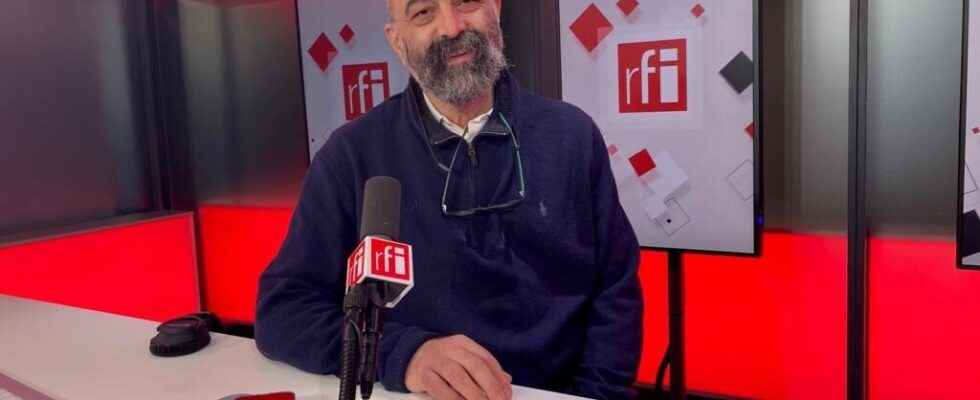In Iran, since the beginning of the demonstrations against the regime, more than 500 people have died, some from lack of treatment. A hundred Franco-Iranian caregivers, on this occasion, signed a column in the newspaper The world to denounce the instrumentalization of hospitals and their staff by the Iranian authorities. Today, the demonstrators no longer dare to go to the hospital for treatment, explains Nozar Aghakhani, a Franco-Iranian neurosurgeon at the Kremin Bicêtre hospital near Paris.
RFI: Nozar Aghakhani, what prompted you to speak out, as Franco-Iranian caregivers?
Nozar Aghakhani: First of all, we denounce the difficulties that caregivers have in caring for the wounded who arrive in hospitals, and especially the difficulties of access to care for these wounded. Some are too scared to go to the hospital, they know they can be arrested directly at the hospital emergency room. Doctors find it difficult to take care of these patients and complete the necessary care. It is for this reason that some doctors have begun to covertly treat patients at home despite extremely high risks. Recently, a young doctor, Dr. Rostami, was found dead and mutilated. She was one of those people who went to the homes of the wounded clandestinely.
You also mention writing fake certificates under duress?
We have had cases where certificates have been drawn up, disguising and camouflaging the causes of injuries, even the causes of death. Whether it was for people who were hospitalized or people who were imprisoned. Some doctors resist and do not do it, but others, faced with the difficulty of the situation, can give in to pressure and do it at the whim of power.
In an interview carried out by RFI at the beginning of December, a Kurdish NGO already pointed out the difficulties of access to care for the demonstrators, but also the transport of blood necessary for transfusions in the regions with a Kurdish majority. Is the situation the same in all regions?
The social, medical and political situation has always been very difficult in the border regions, particularly in Kurdistan and Balochistan, and therefore in the north-west and south-east of the country. Recently, for example, two doctors and a nurse who went to Kurdistan to help the wounded were arrested. Since then, no one knows what became of them. They were not domiciled in the region, they had left for the sole purpose of caring for the wounded. And they disappeared.
Once the people are arrested, it is difficult to know what is going on in the prisons. However, you denounce the use of the death penalty…
It can be considered very clearly that in 2022 it is difficult to support death sentences anywhere. Second, the conditions under which these sentences are handed down are terrible. For example, in the case of our colleague, the radiologist Hamid Ghare-Hassanlou, only a month and a half passed between the moment he was arrested and the moment the death sentence was handed down. It takes much longer than that for a trial to be heard properly and in accordance with international human rights. On the other hand, we know that he and his wife could not choose their lawyer. Authorized lawyers are listed by authority. Beyond a global and total condemnation of the death penalty, we therefore also condemn the conditions in which these sentences are pronounced.
You also call for a reaction from medical, academic and humanitarian institutions at the national and international level. What are the real actions that both institutions and everyone can have? ?
I think it’s an appeal to everyone’s conscience, that is, I think it’s important for people to be able to know what’s going on in Iran right now. And they try to do everything in their power. What we do know is that when the prisoners are known, when their names are mentioned, the media are mobilized, things can eventually become easier for them. When people are not known, on the other hand, it is easier for the power to do with them what it wants. So we have a responsibility to say things. I dare to hope that people will hear our call and that the power will be able to hear this international cry. The use of death sentences as a deterrent, to scare people, is unacceptable. It creates a kind of hatred in society, and that hatred will never go away. If you have your father, your mother, your son who was killed, condemned to death, it will remain in the mind of the family for several generations.
And within the functioning of Iranian society, do you think that institutions, especially medical ones, still have the ability to make their voices heard? ?
At the beginning of current events, in the month of September. There have been attempts to inform and alert medical organizations. There was the society of neurosurgeons, the ophthalmological society who wrote op-eds saying ” Pay attention to what you are doing “. Shooting with grenades at populations who are young and who will be mutilated, lose their eyes and remain blind for the rest of their lives, it also has a cost for society, both moral and economic. They also condemned the working conditions of doctors, but today things are even more difficult. Despite everything, we must not be defeatist and continue to mobilize.
► The tribune of Franco-Iranian caregivers in the newspaper The world
